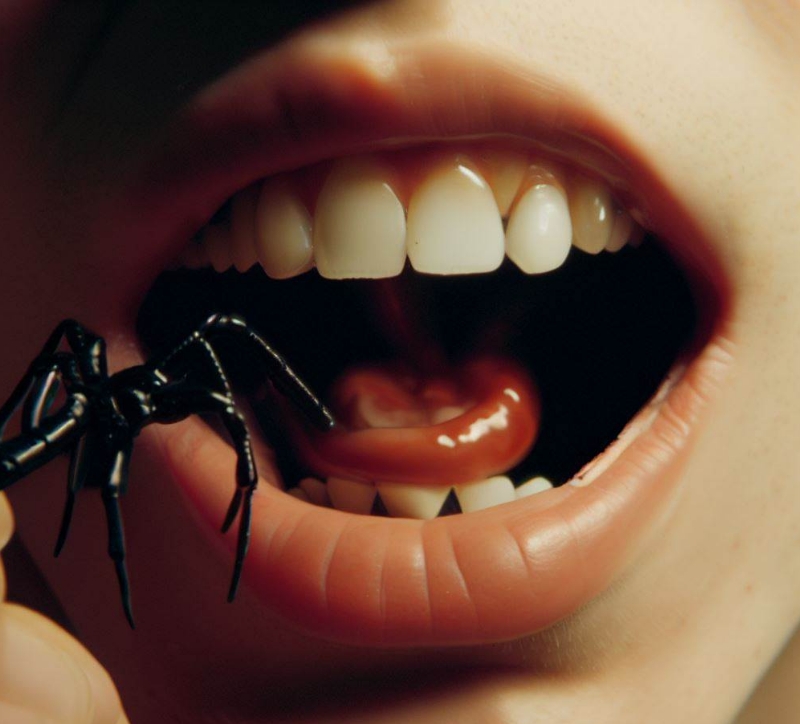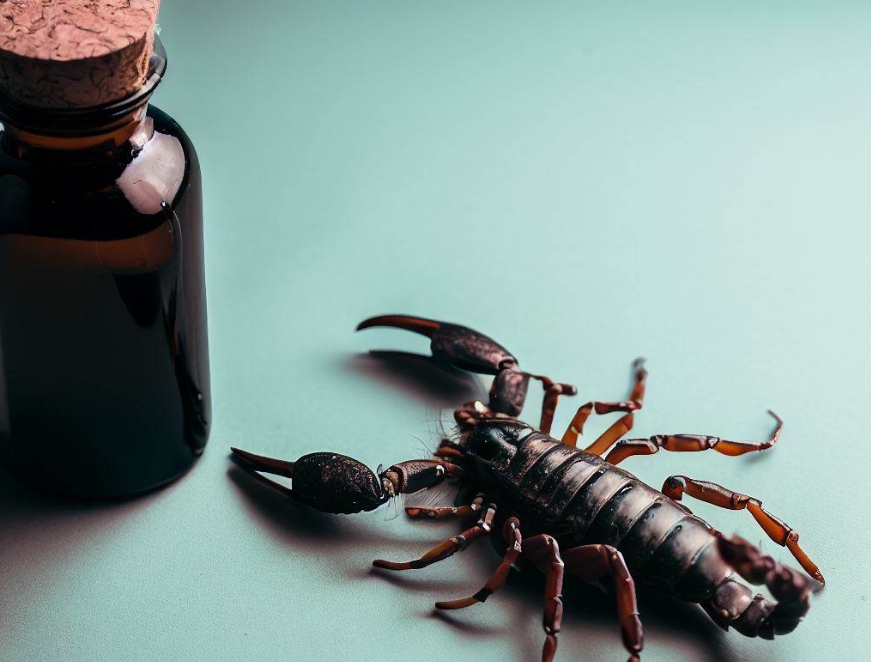Scorpions are fascinating creatures that have captured our imagination for centuries. With their menacing appearance and venomous sting, it’s no wonder they’ve become a symbol of danger and intrigue. But where exactly do scorpions store their venom? In this comprehensive guide, we’ll delve into the world of scorpions to answer that question and more.
The Mighty Scorpion: An Overview
Contents
Before we dive into the details, let’s first gain a better understanding of what scorpions are. Scorpions belong to the class Arachnida, meaning they are related to spiders, ticks, and mites. Although some people might mistake them for insects, they are not. Scorpions actually have more in common with lobsters than insects!
There are over 1,500 known species of scorpions, and they can be found on every continent except Antarctica. These adaptable creatures can survive in a wide range of habitats, from deserts to tropical forests. Some examples of scorpion species include the yellow-tailed scorpion found in the UK and the Asian forest scorpions.
Scorpions are primarily nocturnal, hiding during the day and emerging at night to hunt. Their diet consists mainly of insects, but they can also eat small mammals, reptiles, and other scorpions. They have various adaptations that allow them to thrive in their environments, such as clear scorpions that blend in with their surroundings and desert scorpions that burrow into the sand.
The Anatomy of a Scorpion’s Venomous Sting
Now that we have a basic understanding of scorpions, let’s explore the part of their body that stores venom. The answer lies in their most distinctive feature: the stinger, or telson.
The Telson: A Deadly Weapon
The telson is the bulbous, segmented structure at the end of a scorpion’s tail, or metasoma. It consists of two parts: the vesicle and the aculeus. The vesicle is a bulb-like structure that stores the venom, while the aculeus is the sharp, needle-like tip responsible for delivering the venom.
How the Venom is Produced and Stored
Inside the vesicle, there are a pair of venom glands that produce the venom. The venom then travels through ducts and is stored within the vesicle. When a scorpion is ready to sting, the venom is forced through the aculeus and injected into the target.
The amount of venom a scorpion can store depends on its size and species. Generally, larger scorpions have larger vesicles and can store more venom. However, the potency of the venom is not necessarily correlated with the size of the scorpion. In fact, some of the smaller species, like the white scorpion, can pack quite a punch with their venom.
The Value of Scorpion Venom
While scorpion venom is potentially dangerous to humans, it’s also highly valuable. Scorpion venom is a complex mixture of proteins, peptides, and other compounds, some of which have medical applications. In fact, scorpion venom is worth a staggering amount per ounce, making it one of the most expensive liquids in the world.
Research into scorpion venom has led to the development of drugs that treat conditions such as multiple sclerosis, rheumatoid arthritis, and cancer. Additionally, scientists are studying scorpion venom to develop new painkillers and antimicrobial agents.
The Sting: When Scorpions Attack
While scorpions generally prefer to avoid human interaction, they won’t hesitate to defend themselves when they feel threatened. The severity of a scorpion’s sting can vary greatly, with the majority of species causing mild reactions and a select few capable of inflicting serious harm.
Mild Reactions
Mild reactions are the most common response to a scorpion sting, typically characterized by the following symptoms:
- Pain: This is often described as a sharp, burning sensation.
- Swelling: The area around the sting may become swollen and tender.
- Redness: A reddened area might appear, often accompanied by a minor skin rash.
- Itching: This is a common symptom, which can be alleviated with antihistamines.
These symptoms usually resolve within a few hours to a few days, with treatment typically involving over-the-counter pain relievers and antihistamines. A cold compress can also be applied to the sting site to reduce swelling and numb the area, providing some relief from the pain.
Severe Reactions
Though rare, severe reactions to scorpion stings can occur, especially in cases involving highly venomous species like the Arizona bark scorpion. In these instances, the symptoms can escalate rapidly, and may include:
- Difficulty Breathing: This can be a sign of a severe allergic reaction and requires immediate medical attention.
- Rapid Heartbeat: A significantly increased heart rate can suggest the venom has entered the bloodstream.
- Muscle Twitching: This can range from minor spasms to severe convulsions.
- Seizures: These are less common but are a clear indication of a severe reaction.
These symptoms should never be ignored. If you suspect a severe reaction to a scorpion sting, seek emergency medical care immediately.
Scorpion Bite Treatment
Scorpion stings should always be treated with caution. If you or someone you know has been stung by a scorpion, follow these steps:
- Clean the Wound: Use soap and water to clean the sting site, reducing the risk of infection.
- Apply a Cold Pack: This helps to minimize swelling and can alleviate pain.
- Elevate the Affected Area: If possible, elevate the sting site above the level of the heart to slow the spread of venom.
- Take Over-the-Counter Medication: Pain relievers and antihistamines can be used to manage pain and itching.
- Seek Medical Attention: If severe symptoms such as difficulty breathing or seizures occur, seek emergency medical care immediately.
Living with Scorpions: Tips for Avoiding Stings
While scorpions may seem intimidating, it’s important to remember that they are not aggressive creatures and will generally only sting if they feel threatened. By taking a few simple precautions, you can reduce your risk of being stung.
- Be cautious in scorpion habitats. When in areas known to have scorpions, wear protective clothing such as long pants, boots, and gloves. Avoid walking barefoot or sticking your hands into crevices or under rocks.
- Inspect your surroundings. Before sitting down or picking up items outdoors, inspect them for scorpions. Be especially cautious at night when scorpions are most active.
- Keep your living spaces clean and clutter-free. Scorpions are attracted to dark, hidden places, so reducing clutter in your home can help deter them from taking up residence.
- Seal your home. Make sure all doors, windows, and other potential entry points are sealed to prevent scorpions from entering your home.
Conclusion
Scorpions are truly remarkable creatures with a fascinating biology. Their venom, stored in the telson at the end of their tail, is not only a powerful defense mechanism but also a valuable resource for medical research. By understanding where scorpions store their venom and how to avoid and treat their stings, we can better coexist with these amazing arachnids.
Frequently Asked Questions
Q: In which part of its body does a scorpion store venom?
A: A scorpion stores its venom in the telson, which is the bulbous, segmented structure at the end of its tail (metasoma). The telson consists of two parts: the vesicle, where the venom is stored, and the aculeus, the sharp, needle-like tip that delivers the venom.
Q: How is scorpion venom produced?
A: Scorpion venom is produced by a pair of venom glands located within the vesicle of the telson. The venom travels through ducts and is stored in the vesicle until the scorpion is ready to sting.
Q: Are all scorpions venomous?
A: Yes, all known species of scorpions possess venom. However, the potency of the venom varies greatly among species, and most scorpion stings are not lethal to humans.
Q: How dangerous are scorpion stings to humans?
A: Most scorpion stings result in mild reactions, including pain, swelling, redness, and itching at the sting site. However, some species, like the bark scorpion, possess venom that can cause severe systemic reactions in humans, which can be life-threatening. It is important to seek medical attention if you experience severe symptoms after a scorpion sting.
Q: Can scorpion venom be used for medical purposes?
A: Yes, scorpion venom contains a complex mixture of proteins, peptides, and other compounds that have been studied for their potential medical applications. Researchers have developed drugs derived from scorpion venom to treat conditions such as multiple sclerosis, rheumatoid arthritis, and cancer. Scientists are also investigating scorpion venom as a source of new painkillers and antimicrobial agents.
Q: How can I avoid being stung by a scorpion?
A: To reduce the risk of being stung by a scorpion, be cautious in areas where scorpions are known to live, wear protective clothing, inspect your surroundings, keep your living spaces clean and clutter-free, and seal your home to prevent scorpions from entering. Remember that scorpions are not aggressive creatures and will generally only sting if they feel threatened.




